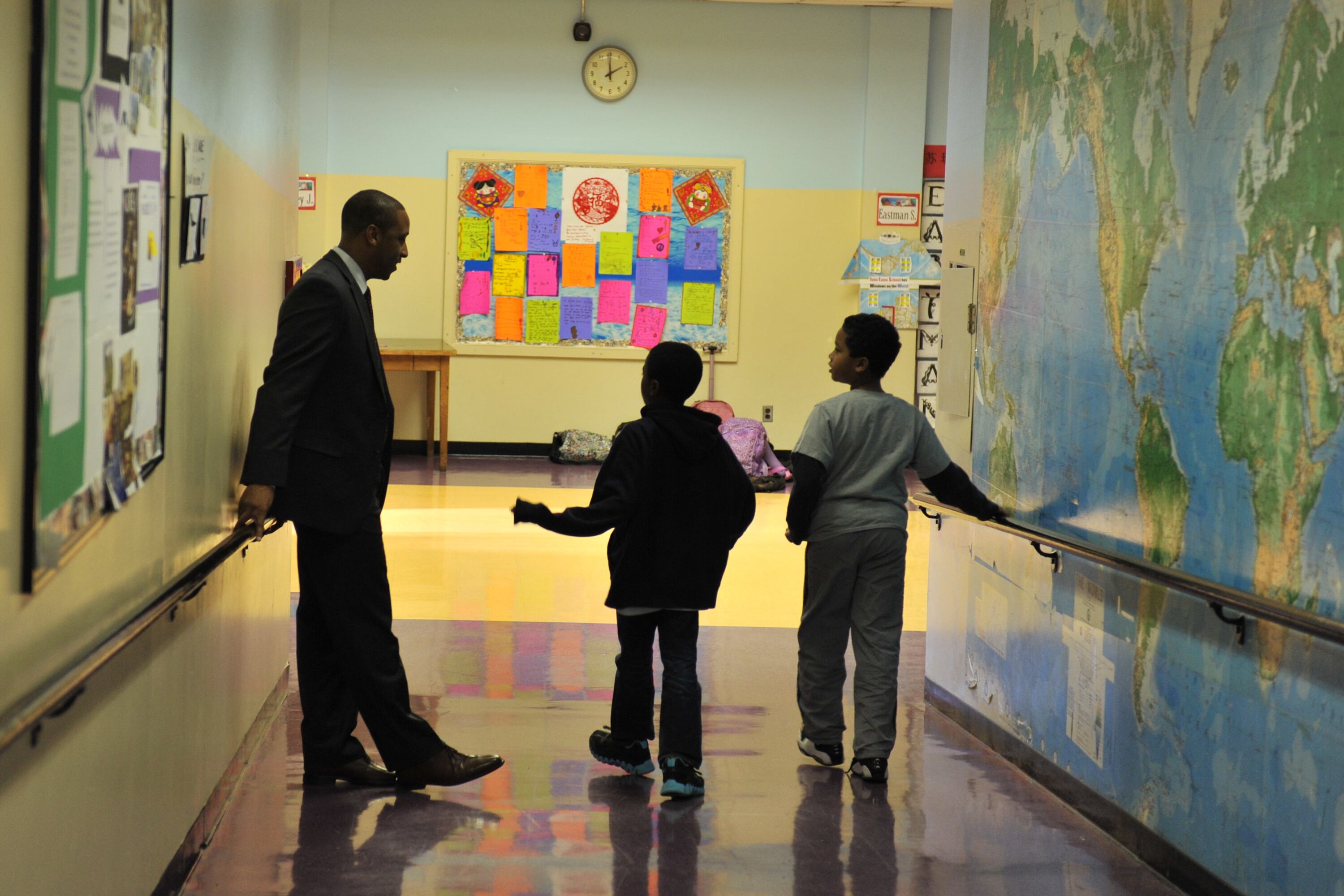School districts in Illinois should continue evaluating teachers’ performance during the pandemic but won’t be penalized if they don’t, the state board of education said.
How to evaluate teachers during the pandemic has been a pressing agenda item for the state school board, as the school year starts with roughly two-thirds of Illinois students online. State Superintendent Carmen Ayala wrote in a letter on Monday that administrators should observe teachers and provide feedback — but she offered districts a loophole if they choose to not follow through. “Such observations cue administrators to provide extra support to teachers who are struggling and reveal the heroic efforts of teachers who are creating strategies that work.”
But she added, “the board decided this agency will not initiate regulatory action against districts that don’t end up moving forward with summative evaluations this year.”
The state’s teachers union and administrator associations called for districts to put a pause on teacher evaluations and give teachers a default rating in a joint letter last month.
Kathi Griffin, president of Illinois Educators Association, said of evaluations, “We didn’t feel that all school districts, or administrators, should be expected to evaluate in a learning environment that they have not been trained in. We do encourage formative feedback. Our administrators are welcome to join in their virtual classes and offer and provide guidance and feedback.”
Donna Leak, superintendent of Community Consolidated Schools District 168 in Chicago’s south suburbs and a member of the state school board, said that her district will be doing evaluations this school year despite the pandemic.
After collaborating with staff and the teachers union, Leak’s district changed the evaluation rubric to accommodate educating students remotely. Leak said that the goal isn’t to punish teachers during a pandemic — it’s to ensure student growth in the future.
“Just because we’re in a remote environment, does not mean that we’re not going to do everything possible to assure student growth,” said Leak. “I think it’s important to note that the statue has not changed. The school code has not changed. The expectation is that we will be evaluating and holding staff accountable”
Darren Reisberg, board chair and the vice president of programs and strategy at the Joyce Foundation, said that summative evaluations will protect good teachers if there are mass layoffs due to the pandemic.
“My fear is that we’re going to have to see potentially layoffs in our school districts. Without summative evaluations, your most recent hires in the district — often times are teachers of color — are laid off because you have a default system where everybody has the same rating. I think that’s the problem,” said Reisberg.
Reisberg also mentioned that without summative evaluations administrators will not be able to identify and support teachers who are struggling. “Evaluations require that teachers who need improvement have a development plan that gives them support in order to help them approve improve in targeted ways,” he said.
Cristina Pacione-Zayas, associate vice president of policy at the Erikson Institute and a state board member, expressed concerned about how school administrators will be able to evaluate educators if school districts are doing multiple forms of learning, such as hybrid, remote, or fully in-person and how educators will be evaluated based on the district’s reopening plan.
“I’m trying to reconcile that we’ve got schools doing different modalities with educators who were never certified or taught to do remote learning. How much of the platform will get into the way of how effective an educator can be and therefore how will they be evaluated,” said Pacione-Zayas.
Recognizing that educators and school districts are enduring different challenges because of the pandemic and with school districts entering the second month of the school year, the board decided that they must be flexible and not punish school districts for not providing summative evaluations.







